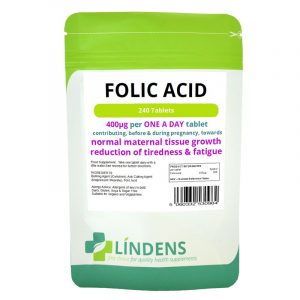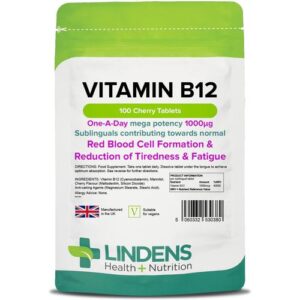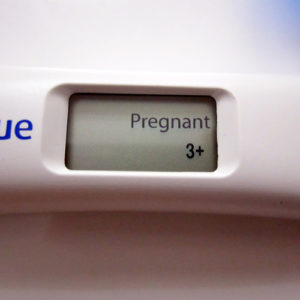For many people pregnancy just happens. However, there are necessary health concerns that should be considered before a mother becomes pregnant. This ensures a healthy mother before, during and after the pregnancy. It also ensures normal foetus development. Taking a folic acid rich diet or supplements is one such consideration that all mothers should take into account. What are the other health benefits of taking folic acid before pregnancy? Before that what is folic acid?
Folic acid is one of the many types of vitamins in the Vitamin B group. It is a water soluble vitamin. Like other water soluble vitamins, the body cannot build reserves of the vitamin and so it has to be taken regularly. In contrast the body can stock fat soluble vitamins to be used later.
A recent study of over 11,000 women discovered that over 50% of the ladies who were trying to conceive were NOT taking a folic accident supplement. This news was both shocking and surprising.
When you are setting out of the journey of parenthood, it is vital to be folic acid aware. In this blog post we will look at the reasons why you should be taking folic accidents supplements if you a woman who is trying to conceive (TTC) We will let you know why you should be taking this vitamin and how much you should be taking. Most importantly, thought, we will look at just WHEN you need to start taking this important supplement when your are looking to get pregnant.
Read on to find out all you will need to know about folic acid, you may be surprised by some of the facts that we will reveal!
How Much Folic Acid Is the Right Amount Per Day?
If you are trying for a baby, the UK’s Department of Health recommends that you take a daily supplement containing 400μg of folic acid.
Why Is Folic Acid so Important When Trying to Conceive?
Folic acid is vital for any mum-to-be as it helps to lower the risk of NTDs (Neural Tube Defects) such as Spina Bifida, in the foetus. If the unborn spine and brain fail to form correctly, these NTDs occur and cause irreparable damage to the nervous system and spinal cord. Vitamin B9, more commonly known as folic acid, can help stop these complex conditions from occurring. Folic acid or folate or Vitamin B9 has many health benefits that prepare a woman for pregnancy. These include:
- Support production of new cells.
- Prevents abnormal changes in the DNA.
- Helps to correct certain types of anaemia.
- Supports the nervous system health.
A woman who has a deficiency of folic acid is at risk of developing health problems and in case she gets pregnant, she will expose her unborn baby to serious health conditions. Deficiency can lead to miscarriage and if the pregnancy goes to term then disorders of the brain-spinal cord system can occur. They are collectively called Neural Tube Defects. This is a poorly developed brain-spinal cord system. The commonest types of neural-tube defects are:
- Spina bifida. This is a defect in the spinal vertebrae that exposes the spinal cord and nerves. This can lead to spinal cord and nerve injury. Infection of the spinal cord can also occur with serious consequences.
- Meningocele is a more serious type of spina bifida where the defect is much bigger and the spinal cord fluid is herniating (protruding) at the back.
- Myelomeningocele is the most serious type of spina bifida where the defect is big and allows both the spinal cord and the fluid to herniate at the back.
- Anencephaly is the absence or rudimentary development of the brain.
- Encephalocele occurs when there is a defect on the skull and the brain tissue protrudes outside.
A defect on the brain or the spinal column leads to other problems like paralysis and deformity of the lower limbs. There may also be disorders of bowel and bladder control. These serious defects can be prevented by taking a diet rich in folic acid or supplementing with folate tablets.
The First 28 Days of Pregnancy Are Vital
NTDs will take place within the first four weeks of pregnancy. A large number of women will not realise that they are pregnant at this stage, that is why the time that you first start to take folic acid is so important.
So When Should You First Start Taking Folic Acid?
Although folate should be part of everyday nutritional needs, a woman planning to be pregnant should make sure that she makes a conscious effort to take enough of it before she plans to get pregnant. She should enhance intake of folate rich foods like dry legumes including beans, peas and lentils. Broccoli, kale, spinach and other green and leafy vegetables are also good sources. Fruits of the citrus family like oranges also contain the vitamin.
The NHS recommends that all women who are trying for a baby should take a supplement of 400 micrograms of folic acid each day. This should be taken from before you are pregnant until you are 12 weeks pregnant. Folate supplements are cheap and effective and many doctors recommend supplementation with up to 5mg per day. Doses may vary depending on existing deficiency or other health conditions like epilepsy.
Taking folic acid before pregnancy will make sure that the critical embryo growth in the first days are normal and will result in a healthy baby without the problems we have discussed above.
When to Start Taking Folic Acid for Maximum Benefit
Ideally, you should begin taking folic acid supplements at least 3 months before you start trying to conceive. This ensures your body has sufficient stores of this crucial vitamin when you do get pregnant. It takes time for folic acid levels to build up. If you’ve been taking birth control, it’s smart to begin folic acid as soon as you go off contraception if you plan to try for a baby.
Vitamin B12 Can Also Help Prevent NTDs
Research shows that when you take vitamin B12 alongside folic acid, it may well be more effective in preventing NTDs than just taking daily folic acid on its own.
A vitamin B12 deficiency can lead to a wide array of health issues, from tiredness and headaches to nerve damage and anaemia. Additionally, research has shown that low levels of vitamin B12 can increase a pregnant woman’s risk of having a baby with an NTD.
In a study conducted by the University of Liverpool, researchers analysed 1,262 cases of pregnancies with anencephaly, a type of NTD, and compared them to 4,653 pregnancies with no NTD. They found that pregnant women with lower levels of vitamin B12 were more likely to have a baby with an NTD.
The study also showed that supplementing with vitamin B12 prior to becoming pregnant significantly reduced the risk of having a baby with an NTD. They recommend that women of childbearing age take steps such as supplementing with B12 vitamin and eating foods that are rich in B12, such as fish, eggs, and fortified cereals.
Prenatal Supplements Can Help Prevent NTDs
Prenatal supplements have been designed to offer a wide range of the vitamins and nutrients that any woman may need in the run up to pregnancy. contains both folic acid and vitamin B12. This supplement is designed to be taken before you get pregnant and contains the exact amount of folic acid the UK department of health recommends at pre-conception stage (400mcg).
Supplements such as Pregnacare Conception are designed to provide advanced nutritional support for women who are actively trying to get pregnant. They also included vitamin D and zinc, both of which have been proven by research to help support normal reproduction and fertility.
Can You Get the Folic Acid You Need Through Food?
There are many natural sources of folic acid and some women may be tempted to try and make sure they eat well to take on board lots of folic acid through food. Certainly, wholemeal bread, leafy green vegetables, cereals, tinned salmon and Brussels sprouts all contain high levels of folic acid. However, eating enough of these foods to get the right amount of folic acid is difficult.
In some countries, bread and flour are artificially fortified with folic acid. However this does not happen in the UK, which is why it is important that you take a folic acid supplement if you are actively trying to get pregnant.
Optimise Folic Acid From All Sources
Taking a folic acid supplement provides the crucial 400 mcg needed daily when trying to conceive. However, you should also aim to get folate from natural food sources through a balanced, nutritious diet.
Eat plenty of fruits and vegetables high in folate. Great options include:
- Leafy green veggies like spinach, kale, arugula, broccoli, Brussels sprouts
These vegetables are powerhouses of folate and other nutrients. They’re versatile and can be easily incorporated into salads, smoothies, or cooked dishes. Spinach and kale, in particular, are excellent sources of folate and can be easily added to many recipes. - Asparagus, okra, green peas
These green vegetables are not only rich in folate but also provide fibre and other essential vitamins. Asparagus is especially high in folate, while okra and green peas offer a good balance of nutrients and can be prepared in various ways. - Citrus fruits and juices
Oranges, grapefruits, and lemons are excellent sources of folate and vitamin C. The vitamin C in these fruits can help enhance the absorption of folate from other foods. Fresh juices or whole fruits can be enjoyed as snacks or added to meals for a folate boost. - Beans, lentils, chickpeas
These legumes are not only rich in folate but also provide protein and fibre. They’re versatile ingredients that can be used in soups, salads, or as meat substitutes. Lentils, in particular, are an excellent source of folate and cook quickly compared to other legumes. - Nuts and seeds like sunflower seeds, peanuts
These provide folate along with healthy fats and proteins. They make for convenient snacks and can be added to salads or baked goods for extra nutrition. Sunflower seeds are especially high in folate and can be easily sprinkled on various dishes. - Eggs, milk, yogurt
These animal products offer folate along with other essential nutrients like vitamin B12 and protein. Eggs are particularly versatile and can be prepared in numerous ways. Yogurt can be enjoyed with fruits or nuts for a folate-rich snack or breakfast. - Liver and other organ meats
While not as commonly consumed, organ meats are extremely rich in folate and other nutrients. Liver, in particular, is one of the most concentrated sources of folate available. However, it’s important to consume these in moderation due to their high vitamin A content.
Look for whole-grain, fortified breads and cereals with added folic acid. Opt for brown rice over white rice which has the folic acid removed during processing.
Cook vegetables using minimal water to preserve folate levels. Steaming is best, avoid prolonged boiling.
Eat folate-filled foods alongside vitamin C sources like oranges, peppers, strawberries. Vitamin C boosts folate absorption. Avoid excess alcohol which impairs absorption.
Discuss your diet with your doctor or nutritionist. They can suggest folate-rich meal plans tailored to your needs and preferences. Track your daily folate intake from foods and supplements to ensure you meet targets.
Some groups should aim for even higher folate intake of 600-800 mcg daily:
- Women with a history of neural tube defects
- Those taking anticonvulsant or metformin medications
- Carrying twins or multiples
- BMI over 30
- Diabetics
- Celiac or inflammatory bowel disease
Work closely with your healthcare provider to determine your optimal daily folate requirements before and during pregnancy.
Folic Acid Needs May Be Higher for Some Women
Certain factors can increase your risk of having a baby with neural tube defects. If any of these apply to you, ask your doctor about taking a higher dose of folic acid, usually 4-5 mg per day instead of 400 mcg:
- Family history of neural tube defects
- Taking certain anti-seizure medications
- Diabetes
- Obesity
- Sickle cell anaemia
- Inflammatory bowel disease (Crohn’s or ulcerative colitis)
Getting enough folic acid is especially important if you have any of these risk factors. Your doctor can advise on the optimal dose in your situation.
What If I’m Pregnant Already?
Firstly, congratulations! Secondly, if you didn’t take folic acid or prenatal supplements before conception, it’s not too late. Start taking folic acid supplements as soon as you realise that you are pregnant.
Photo by Anthony Cunningham for Zoom Testing
Zoom Baby is a leading supplier of Pregnancy Tests and Ovulation Test Kits
This post was originally published in 2017 and last updated in October 2024.







